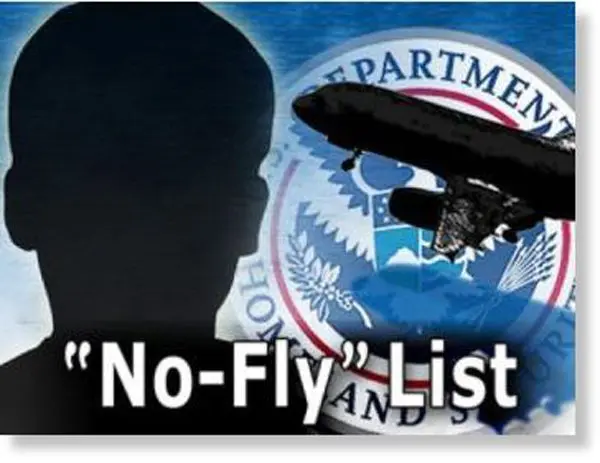
As spring break and summer approach, many people in the community will be looking to vacation or travel overseas. But some of them might not be able to board an airplane with dignity or even get on one at all, depending on what FBI list they are on.
Community members on the No Fly List will be confronted by Homeland Security agents at the check-in booth and told that they are not allowed on a plane in the United States. And those on the Terrorist Watch List will be publicly escorted by security personnel at the airport and subjected to hours of additional interrogation and invasive searches before boarding their planes.
The FBI’s Terrorist Screening Center compiles and keeps a database of names on the lists, based on reports from America’s numerous intelligence agencies.
While it is suspected by rights groups that ethnicity and religion play a role in placing people on those lists, travel restrictions are a national civil rights issue. Prominent people, including members of Congress, army veterans, businesspeople, artists and journalists have been victims of prolonged questioning and waiting at airports for being placed on the Terrorist Watch List or having a similar name to someone on it.
Nelson Mandela was a symbol of justice, forgiveness and peaceful dissent to billions around the world. But to U.S. intelligence agencies, he deserved a place on the Terrorist Watch List. Mandela remained on the list until 2008.
The late Senator Ted Kennedy said in 2004 that he had to personally call the president of Homeland Security after he had been repeatedly delayed at airports. Acknowledging that most citizens do not have access to high ranking security officials, Kennedy later asked, “How are [ordinary citizens] going to be able to get to be treated fairly and not have their rights abused?”
The answer is that there is no simple procedure for those affected to remove their names from the lists. One can file a redress claim with the Department of Homeland Security (DHS). The DHS normally writes back, stating that most people on the lists are not suspected terrorists and assuring the complainant that he should not be alarmed.
Ideally, investigators from DHS or the FBI then interview the person of interest in order to clear his name. But with hundreds of thousands of names on the Terrorist Watch and No Fly lists, most people fall through the cracks and remain victims of unjustified punishment when traveling.
Another way for people to remove their names from those lists is file a lawsuit against the federal government. However, lawsuits can drag for years. And not everybody can afford the hefty fees of taking the matter to court. Also, young people who might be seeking a job and prominent individuals who want to protect their businesses might not want to turn their placement on lists to be a matter of public record, possibly affecting their standings and reputations.
The No Fly List allows the federal government to restrict citizens’ freedom of transportation without due process.
Nobody knows why exactly a person is placed on the list. The traveler is being legally penalized without knowing the reason for the punishment, observing the evidence against him or having a chance to defend himself. Due process is one of the central elements that differentiate a democracy from a dictatorship, where the government can punish people without a real crime.
As a community, we cannot control the way bureaucracies operate. What we can do is make sure that this issue becomes a political priority by pressing it with our organizations, leaders and elected representatives.






Leave a Reply